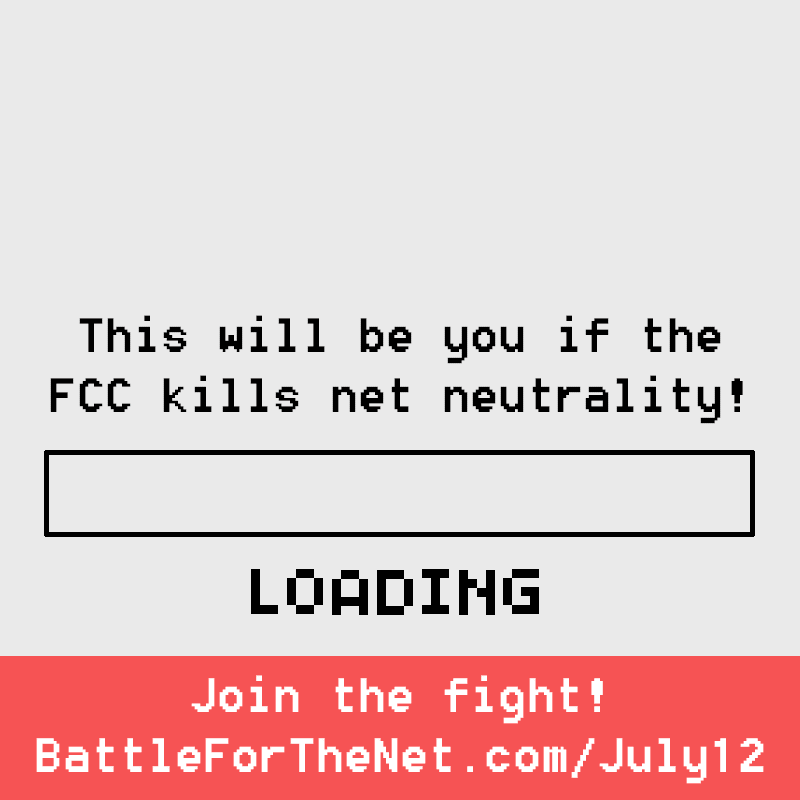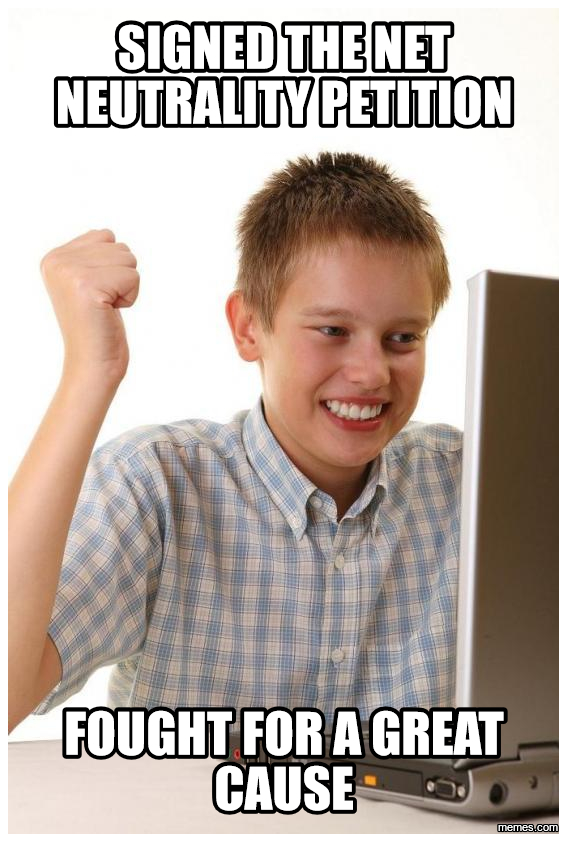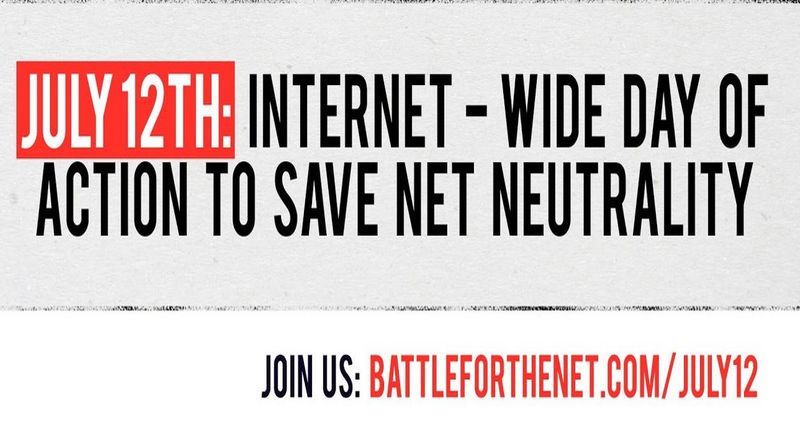Net Neutrality Day of Action July 12
The Finger Lakes Library System is participating in Battle for the Net on July 12, 2017.
What will we be doing?
All of our social media platforms and website will be displaying images from https://www.battleforthenet.com/july12/ with what it could look like if Net Neutrality were to disappear.
How can you help?
The existing rules are crucial for public institutions like libraries. Now is the time to make your voice heard. The FCC will be accepting comments on its proposed rollback of these rules until July 17.
To leave a public comment on the FCC site:
- Go to the FCC’s page for filings related to the Restoring Internet Freedom proposal.
- Click on Express Comment in the middle of the page.
- In the Proceedings box, add 17-108 to associate your comment with the right proposal.
- Enter your name and address, and your comment. Note: This information will be publicly posted on the FCC’s website once it’s submitted and cannot be edited.
Tell the FCC why net neutrality matters to you as a librarian or information professional. The best stories are local, compelling, personal, relatively recent, and have details.
- What digital content do you offer your community that might be relegated to “slow lanes” or might bring higher costs to the library if your vendors are forced to pay for prioritized delivery? (This may include ebooks, streaming media, interactive homework assistance, online language learning, and digital special collections.)
- Do you offer no-fee Wi-Fi to patrons?
- Do patrons use the internet at your library to access online government programs and services? Would deprioritized access hurt them?
- Do patrons use the internet at your library to upload and share their own digital media, develop and support small businesses, use video conferencing, or collaborate online for school or research projects? What would slower service do to these activities?
After you comment help spread the word by:
- Download and use images from https://www.battleforthenet.com/july12/
- Use the hashtags when promoting your own Save the Net campaign
- #NetNeutrality
- #BattleForTheNet
- #FCC
- #OpenInternet
- #FreeTheNet
What is net neutrality?
Net(work) neutrality is the basic principle that protects our free speech on the Internet. “Title II” of the Communications Act is what provides the legal foundation for net neutrality and prevents Internet Service Providers like Comcast, Verizon, and AT&T from slowing down and blocking websites, or charging apps and sites extra fees to reach an audience (which they then pass along to consumers.)
Why is net neutrality important?
The Internet has thrived precisely because of net neutrality. It’s what makes it so vibrant and innovative—a place for creativity, free expression, and exchange of ideas. Without net neutrality, the Internet will become more like Cable TV, where the content you see is what your provider puts in front of you.
What does this have to do with libraries?
The American Library Association is a strong advocate for intellectual freedom, which is the “right of all peoples to seek and receive information from all points of view without restriction.” Intellectual freedom is critical to our democracy, because we rely on people’s ability to inform themselves. The Internet connects people of diverse geographical, political, or ideological origins, greatly enhancing everyone’s ability to share and to inform both themselves and others.
Our libraries’ longstanding commitment to freedom of expression in the realm of content is well-known; in the context of the net neutrality debate, however, we believe it is equally important to stress that the freedom of libraries and librarians to provide innovative new kinds of information services will be central to the growth and development of our democratic culture. A world in which librarians and other noncommercial enterprises are of necessity limited to the Internet’s “slow lanes” while high-definition movies can obtain preferential treatment seems to us to be overlooking a central priority for a democratic society – the necessity of enabling educators, librarians, and, in fact, all citizens to inform themselves and each other just as much as the major commercial and media interests can inform them.
The ability of the Internet to spread and share ideas is only getting better. With modern technology, individuals and small groups can produce rich audio and video resources that used to be the exclusive domain of large companies. We must work to ensure that these resources are not relegated to second- class delivery on the Internet—or else the intellectual freedoms fostered by the Internet will be constrained.
One application that libraries are especially invested in is distance learning. Classes offered using audio and video streamed over the Internet have huge potential to bring expert teachers into the homes of students around the globe.
More Resources:
American Library Association
http://www.ala.org/advocacy/telecom/netneutrality
Social Media Resources
https://www.battleforthenet.com/july12/

